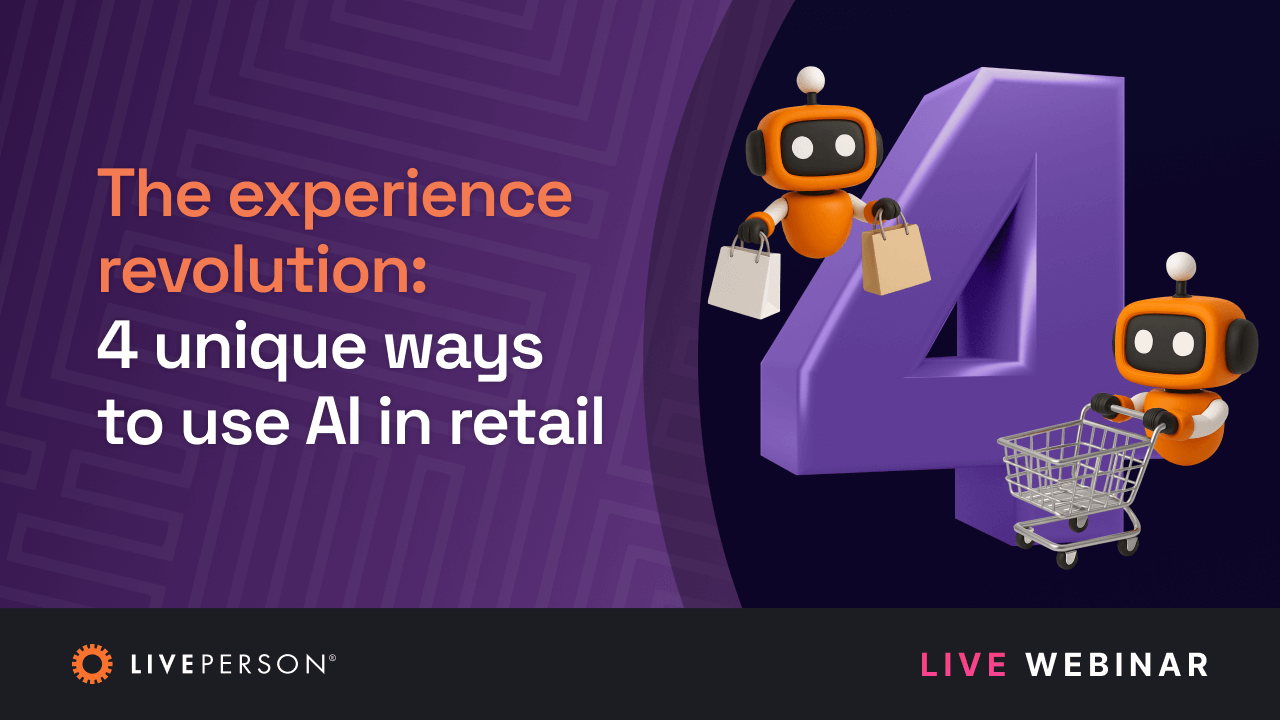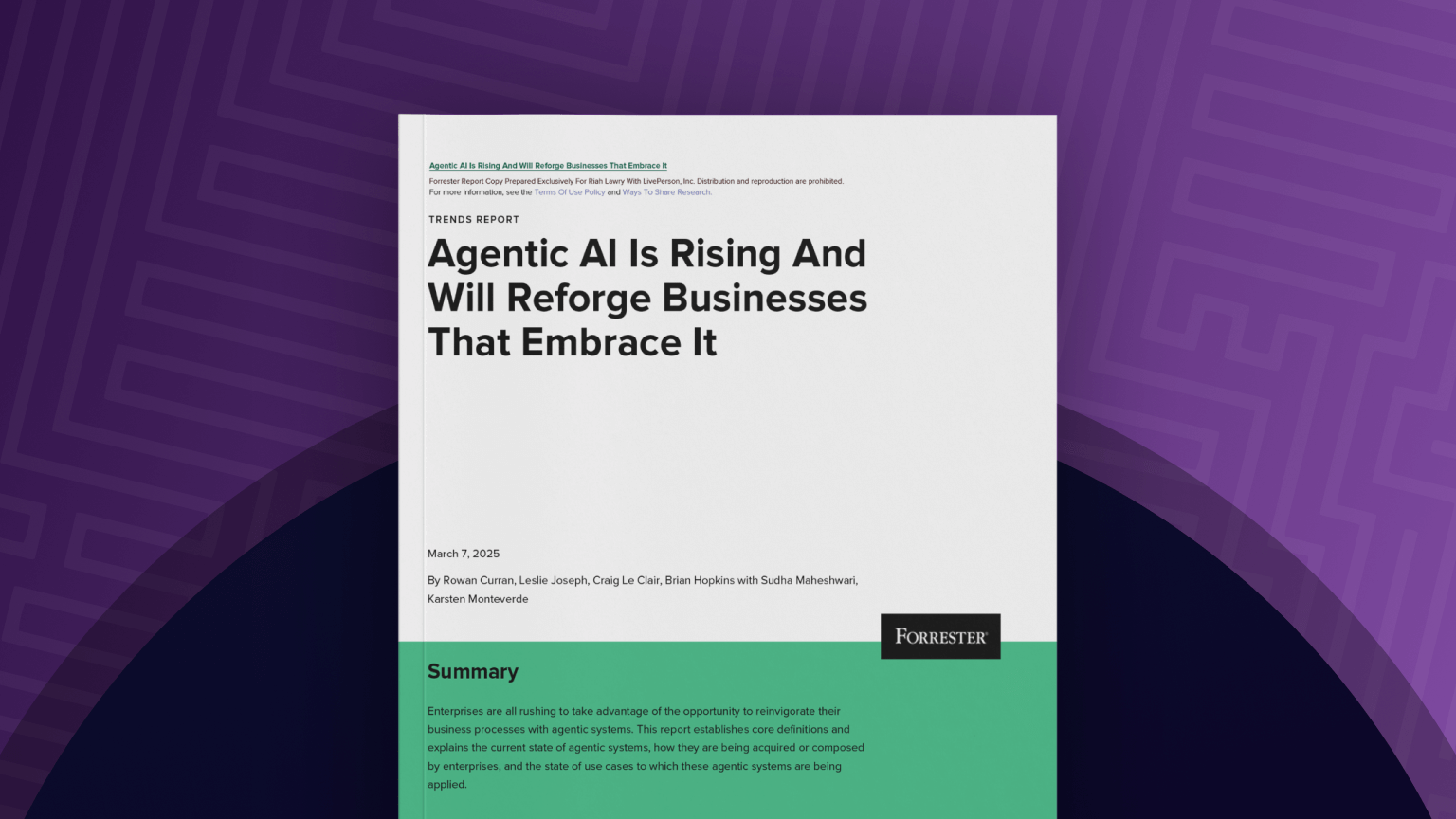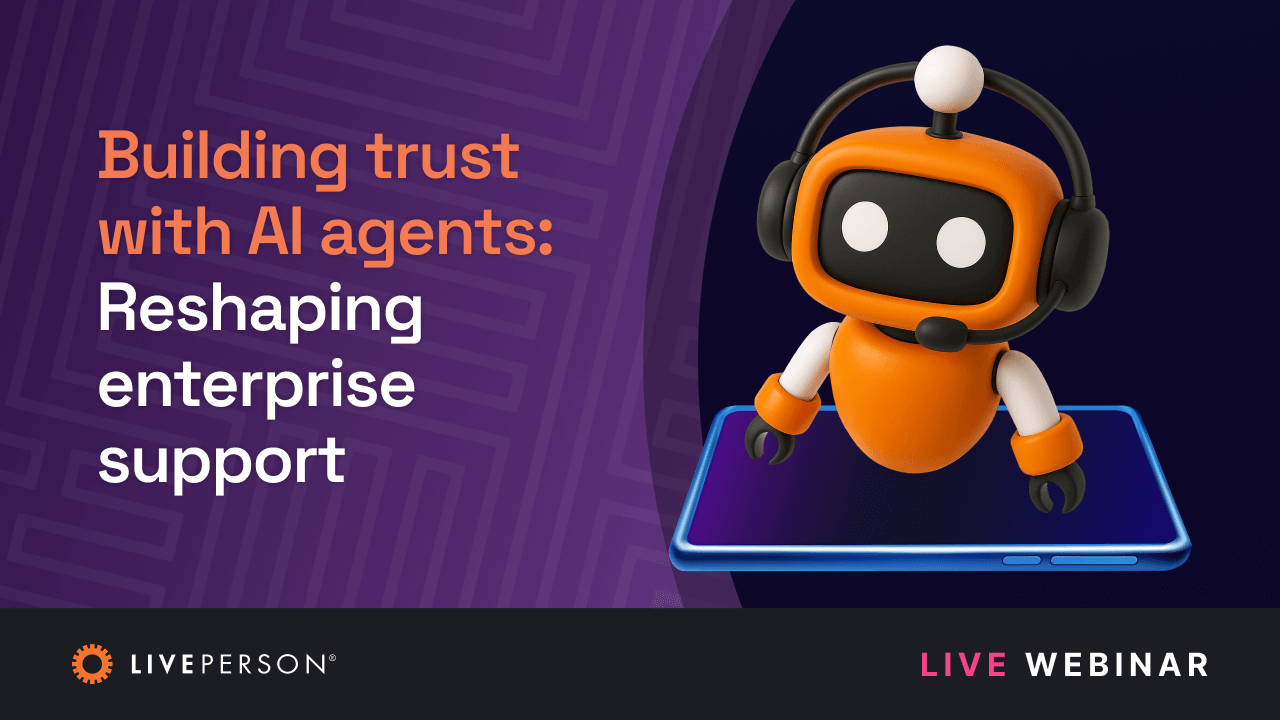article
From chatbots to AI agents: How to design purpose-built AI experiences with a human touch
September 13, 2024 • 8 minutes
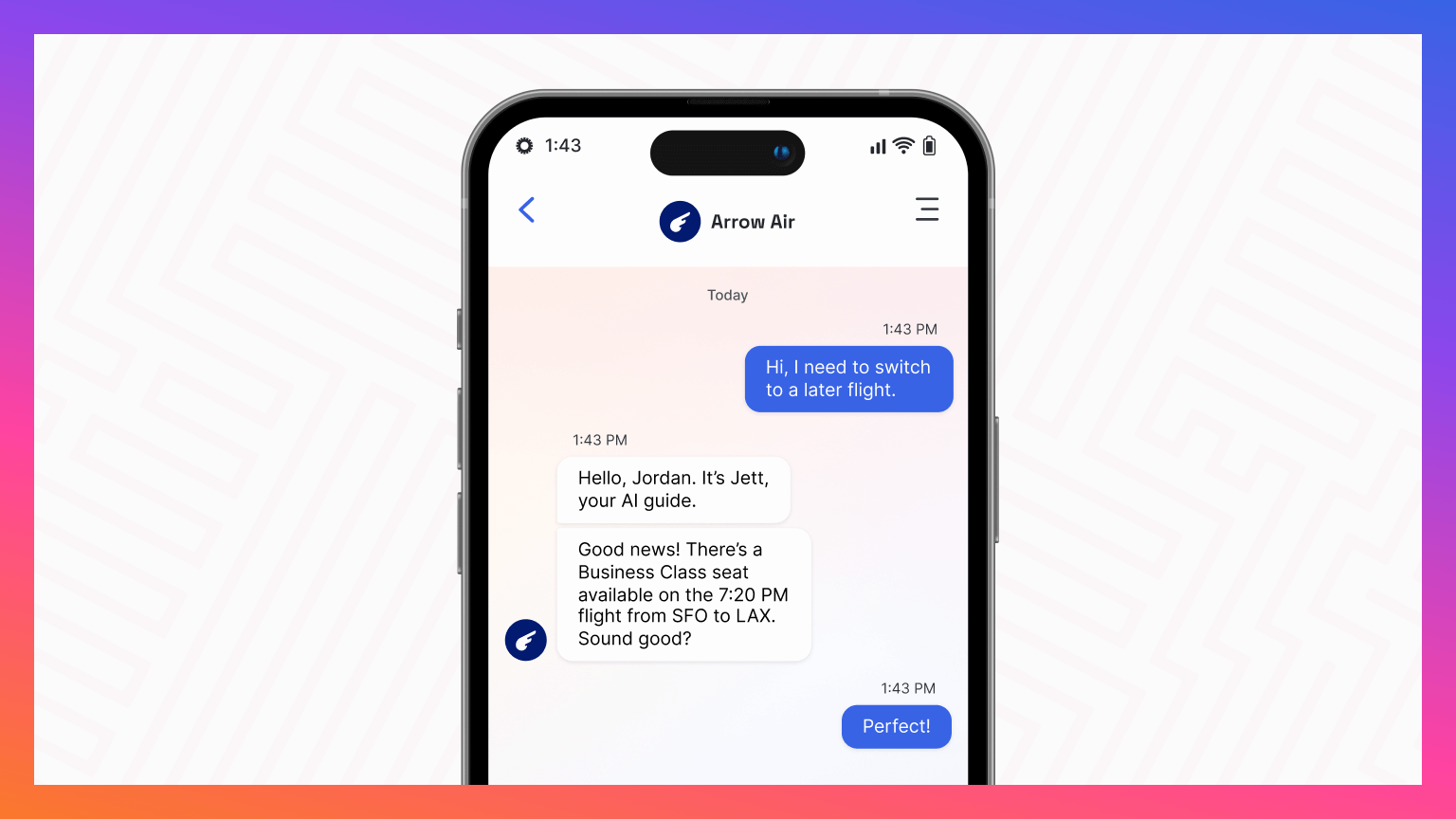
Companies are experimenting with generative AI tools in almost every facet of their business operations— but not all of these experiments are successful at delivering ROI.
Customer service, however, is a key domain where generative AI is already driving measurable impact. According to McKinsey, the application of generative AI to customer care functions could realize 30 to 45% in productivity-related savings.
AI agents play a key role in these transformative efforts and provide a compelling opportunity for brands to not only streamline their operations, but also gather data more efficiently, allocate their human agents to more impactful work, and offer a more personalized customer experience.
In this blog post, we’ll explore what AI agents are, how they compare to old-school chatbots, and how they’re transforming business operations across a range of industries.
What is an AI agent?
Sometimes (falsely) referred to as “AI chatbots,” AI agents are an advanced generative AI tool that uses technologies such as LLMs (large language models), NLP (natural language processing), and advanced machine learning algorithms to interact with customers.
AI agents can respond to questions, find information, and complete tasks, such as providing order status information, collecting data, or routing conversations to the right place, without continuous human intervention. What’s even more exciting is that they can learn from past interactions and improve over time, making them especially well-suited to dynamic environments like customer service and sales.
What is the difference between a chatbot and an AI agent?
While both chatbots and AI agents are used in customer interactions, they’re fundamentally different in the extent of their capabilities and what they’re designed to do.
Chatbots are typically rule-based systems, designed to handle specific, predefined customer queries through scripted responses. While they can handle simple processes and basic support (such as answering FAQs), they’re quite limited in what they can do.
On the other hand, AI agents are more versatile and autonomous. They can answer a much more diverse range of questions, continuously improve as they interact with customers, and even handle complex tasks such as scheduling meetings, managing workflows, analyzing data, and predicting customer needs.
How does an AI agent work?
AI agents work by leveraging a combination of advanced technologies and processes. Generally, an AI agent uses an LLM across messaging and voice to handle customer conversations. The higher the quality of the LLM (and training data sources such as past customer interactions, databases, and external inputs), the more accurate and relevant the AI agent’s outputs and the better it will perform.
AI agents also use machine learning to identify patterns, trends, and anomalies in the collected data, which then helps the AI learn from past conversations and improve their outputs over time. Another key piece of technology that AI agents use is NLP, which allows them to interpret human language and generate accurate responses.
Ultimately, this all comes together to make it possible for an AI agent to effectively address common tasks that customer-facing teams face, such as answering tough questions and routing customers to the right place.
But even though AI agents are capable of much more than ever before, it doesn’t necessarily mean that businesses should eliminate human interaction.
Orchestrating between multiple agents: AI and human
According to LivePerson’s State of Customer Conversations report, consumers are still ambivalent about interacting with a company through artificial intelligence. In fact, only 50% of consumers feel positive about using AI to engage with a business.
This is part of the reason why orchestration between AI and human agents is crucial for providing an efficient and seamless customer experience (CX). Conversation orchestration is an approach for these multi-agent systems that keeps humans in the loop while ensuring that AI-generated responses can be reviewed and approved before being sent to customers. (Another reason is that there are always those complex or sensitive cases that are better handled by a human agent’s ability.)
More sophisticated conversational AI solutions, such as LivePerson’s AI chatbot agents, come with extensive customization options that allow you to choose between supervised modes with human oversight or fully autonomous agents:
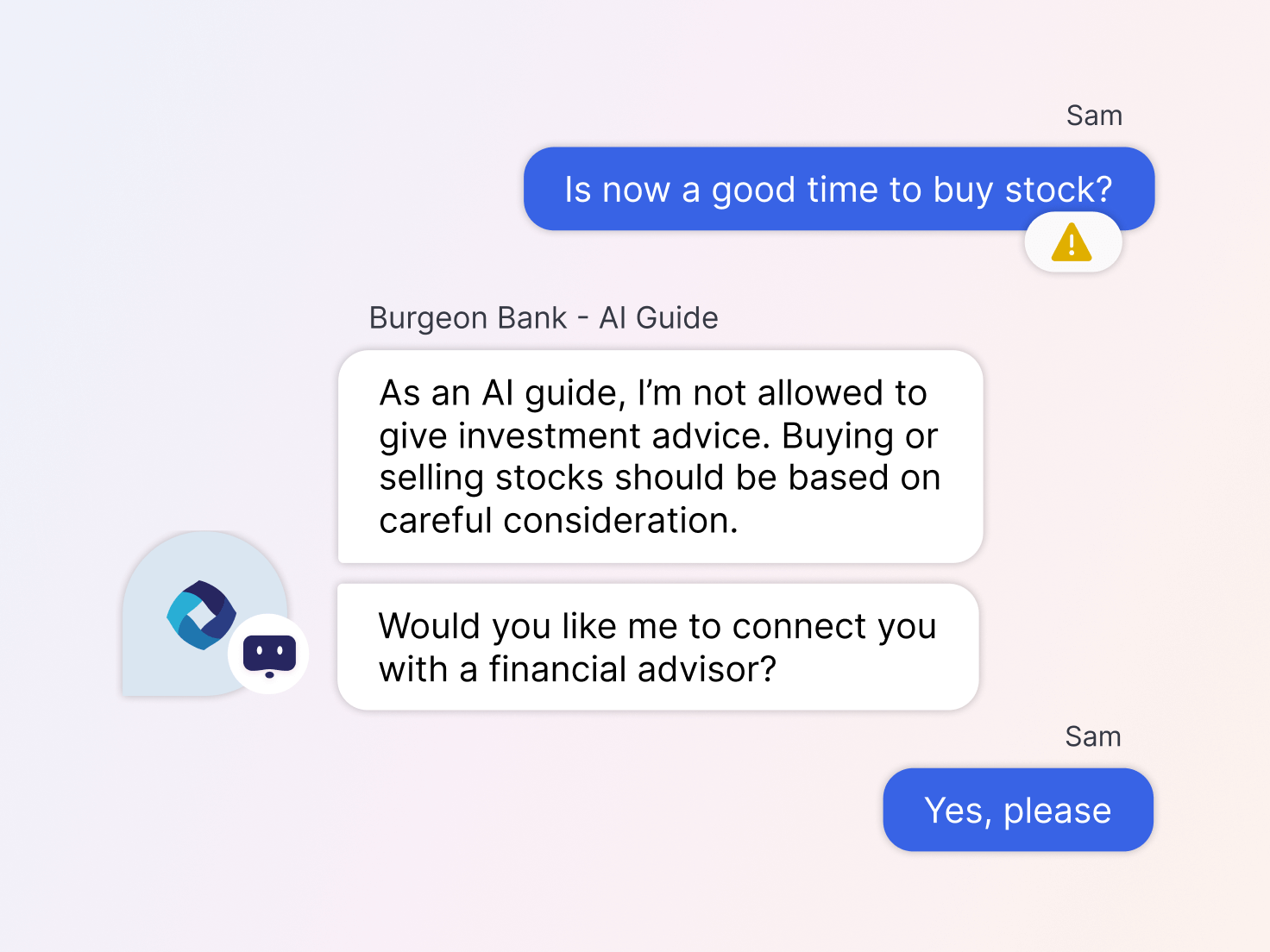
This is particularly useful for companies in industries that require human approval and oversight of the customer journey. For example, the sales team for one of the largest health insurers in the United States supports new and current members in choosing the best Medicare plan to fit their needs.
Because health insurance needs can vary from person to person, the team took a combined AI + human approach. They built an AI greeter bot to proactively engage consumers at different stages of the insurance research and buying process, asking questions like “Need help looking for the right plan?” or “Ready to enroll?”
The AI agent system would then collect data like Medicare numbers, names, and other qualifying information before routing the person to a sales rep. This strategy helped to improve agent and customer satisfaction in the sales process.
Purpose-built vs. general-purpose AI agents
Instead of using a one-size-fits-all AI agent, companies are beginning to explore specialized AI agents that are designed to address distinct enterprise use cases for both customer- and agent-facing situations.
LivePerson’s specialized, purpose-built AI agents are designed to handle specific tasks and use cases such as data collection, conversation routing, and enhanced personalization. While general-purpose AI agents may be used across more functions, they aren’t optimized for the enterprise contact center, which results in lower accuracy and efficiency.
For example, a question-answering AI agent can handle a significant portion of conversations — typically from 10 to 30% — that can be resolved with a knowledge base. For the remaining interactions, you can deploy AI agents for routing to direct customers to the right bot or human agent who can best handle their question.
These specialized AI agents work together to create a connected experience across both voice and digital channels, while maintaining the level of control your business needs and empowering agents to provide faster and more personalized customer care.
Examples of specialized AI agents
LivePerson has introduced a set of purpose-built AI agents, each designed to perform specific tasks efficiently and accurately:
KnowledgeAI™ agent
One of the biggest advantages of generative AI agents over traditional chatbots is their ability to respond to a wide range of questions — unlike chatbots, AI agents can answer even complex questions and customer queries worded in unusual ways.
LivePerson’s KnowledgeAI™ agent, for example, integrates your existing content sources such as knowledge bases, websites, and documents to power intelligent answers and also pull recommendations for human agents:
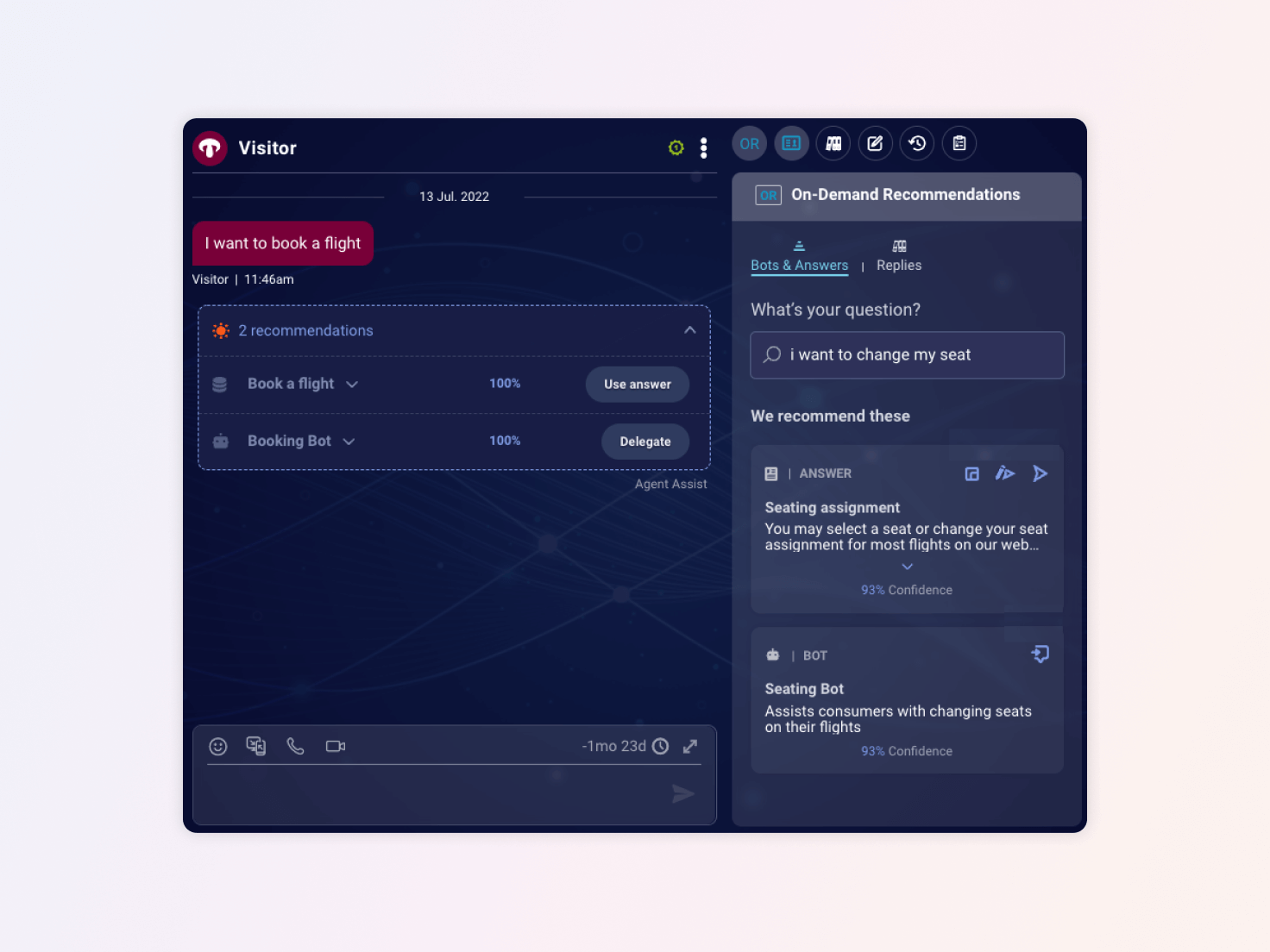
What are the benefits of the KnowledgeAI agent?
- It maximizes your existing content investments. Your company already holds vast amounts of data in your systems like CRMs, CMSs, internal documents, and knowledge bases. KnowledgeAI agent uses all this data effectively to give more accurate and relevant answers to both customers and agents.
- It improves customer satisfaction—as long as your knowledge bases are up-to-date, KnowledgeAI agent’s outputs will be accurate and tailored to your customers’ needs.
- It ensures safety by reducing hallucinations. For example, LivePerson’s proprietary Hallucination Detection model ensures that generated responses are more accurate and consistent with your business’s underlying data.
Routing AI agent
Need to easily and efficiently guide customers to the answers they’re looking for? LivePerson’s Routing AI agent leverages generative AI to accurately discern consumers’ needs, ask the right follow-up questions, and facilitate the appropriate transfers to help them reach the right destination.
What are the benefits of Routing AI agent?
- It accelerates deployment by skipping the lengthy NLU model training process and improves your routing system to accurately understand multiple customer intents, recognize typos, and intuitively disambiguate queries, all without specialized training.
- It increases operational efficiency by reducing mistakes in transfers, which allows agents to be more productive and results in faster, more accurate service delivery.
- It boosts first-contact resolution rates by accurately sending customers to the right human or AI agents, which saves time and increases CSAT scores. For example, a publicly traded B2B SaaS company improved deflection and first contact resolutions rates by 30% each — and increased its chatbot customer support NPS from -25 to 50 in only the first 18 months — using LivePerson’s Routing AI agent.
Data collection AI agent
For companies that need to regularly gather information from customers, LivePerson’s Data collection AI agent simplifies this process and minimizes the amount of manual work needed. Where chatbots may struggle with complex inputs, the Data collection AI agent is better equipped to understand the nuances in conversations and collect different types of data more effectively.
Open Universities Australia, for example, uses this type of generative AI agent to gather key information from students in a conversational manner, which is then used to qualify leads. Not only did this reduce the abandonment rate and ensure that advisors received detailed conversation summaries, it also more than doubled their lead qualification rate compared to their previous scripted AI chatbot.
What are the benefits of the Data collection AI agent?
- It helps achieve operational readiness faster, bypassing lengthy and complex development phases that are usually required to automate data collection flows.
- It’s more cost-effective because it reduces the time agents spend on collecting information and correcting inaccuracies.
- It lets you collect a wider range of data points more efficiently, with less manual work.
Elevate your CX with AI agents today
AI agents are transforming customer interactions and business operations with their ability to learn, adapt, and work autonomously, setting them apart from traditional automation solutions like chatbots.
As AI technology continues to evolve, AI agents will become even more pivotal to driving innovation and growth. By orchestrating a harmonious partnership between AI and human agents, businesses can unlock new levels of efficiency, productivity, and customer satisfaction.


